Error message
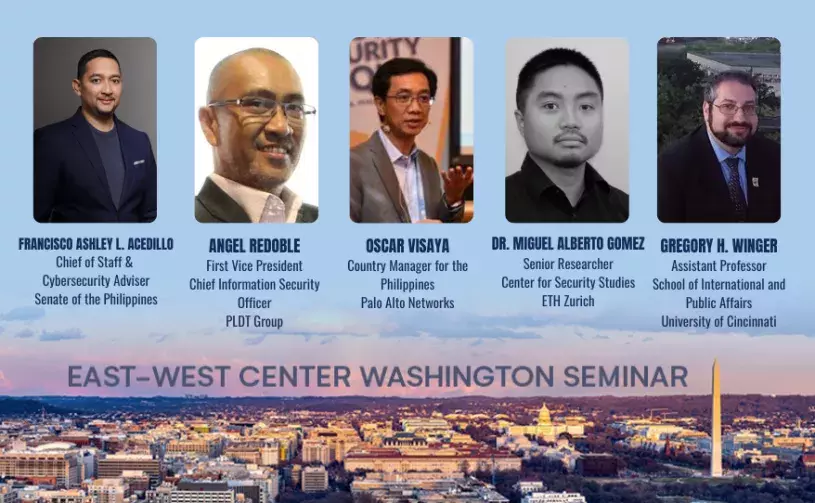
OFFICE/DEPARTMENT
The East-West Center in Washington invites you to an
Indo-Pacific Foreign Policy and Defense Series Seminar:
Securing a Digital Nation: Insights and Lessons from the United States for Its Ally, the Philippines
A Conversation With:
Francisco Ashley L. Acedillo
Chief of Staff & Cybersecurity Adviser
Senate of the Philippines
Angel Redoble
Chairman
Philippine Institute of Cybersecurity Professionals
Oscar Visaya
Vice Chairman
Philippine Institute of Cybersecurity Professionals
Dr. Albert Miguel Gomez
Senior Researcher
Center for Security Studies, ETH Zurich
Dr. Gregory H. Winger
Assistant Professor
School of International and Public Affairs, University of Cincinnati
Dr. Satu P. Limaye (Moderator)
Vice President
East West Center
In a world where data has overtaken oil as its greatest currency, the country that is most digitally connected and the most adept in technology gets to ascend, or in the case of the United States, keep the totem pole’s top spot. But this connectivity comes with a cost: It has also made itself the prime target of the most sophisticated hacking groups, and in the case of its rival states, the most determined and most capable of undermining its networks and systems both government and private.
Although a developing country, the Philippines is not without its threats and challenges in cyberspace. As the United States’ long-time ally in the Asia Pacific region from which many of its institutions of the former have been modeled after the latter, how can the country learn from the US experience in leading both federal and private efforts to secure cyberspace from malign threats? What are the areas of possible cooperation between these two allies?
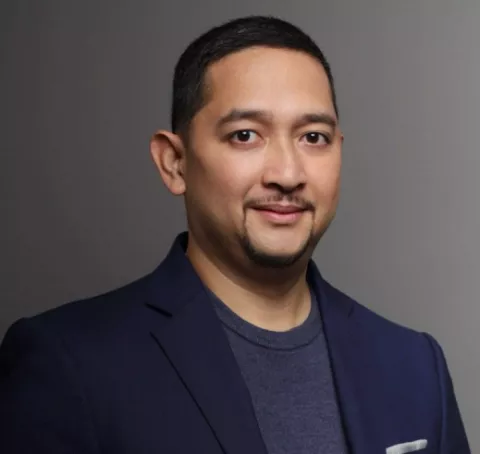
Francisco Ashley L. Acedillo is the Chief of Staff and Cybersecurity Adviser for the Senate of the Philippines. Acedillo also serves as the President of PICSPro Inc. and is an Adjunct Faculty Member for Technology at the Asian Institute of Management. Prior to his current capacities, Acedillo has over 15 years of experience in various positions related to cybersecurity consulting and policy, including as a Member in the House of Representatives and a Pilot in the Philippine Air Force. He has a BS from the Philippine Military Academy, a Master of Management from the Asian Institute of Management, and a JD from the University of the Philippines College of Law.
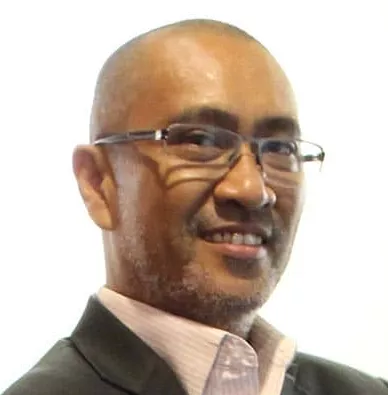
Mr. Angel Redoble is a First Vice President and the Chief Information Security Officer of PLDT Group, Smart Communications and ePLDT Group and formerly a Senior consultant of Indra Sistemas, Spain leading cybersecurity projects. He is currently the Chairman and Founding President of the Philippine Institute of Cyber Security Professionals and The Chairman of the MVP Group Cyber Security Council and currently and MPIC Group Chief Information Security Advisor. A former adjunct faculty and course director of the Cybersecurity Executive Course at the Asian Institute of Management (AIM).
Mr. Redoble is the former Chairman of the PNP Anti Cybercrime Group National Advisory Council. An alumnus of the National Defense College of the Philippines (NDCP) Senior Executive Course on National Security, where he is also a regular lecturer on the topics Cyber Security and Cyber Warfare.
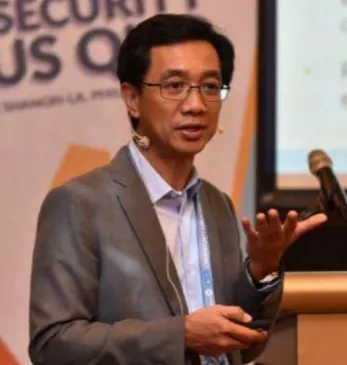
Oscar Visaya is the Country Manager for the Philippines at Palo Alto Networks for more than five years.
Prior to joining Palo Alto Networks, Oscar held multiple Sales and Technology leadership roles at F5 Networks and Cisco. He was formerly the Country Director and ASEAN Service Provider Virtual Team Leader at F5 Networks and the Regional Manager and Systems Engineering Manager at Cisco.
Oscar is currently the Vice Chairman of the Board of Directors for Philippine Institute of Cybersecurity Professionals.
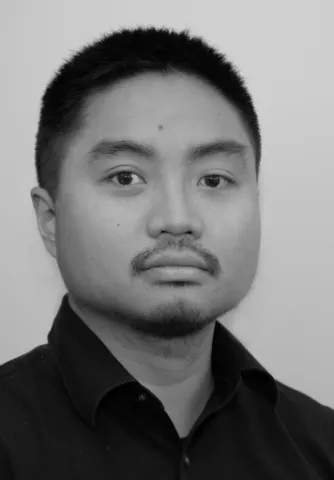
Dr. Miguel Alberto Gomez is a Senior Researcher at the Center for Security Studies (CSS) at ETH Zurich. He completed his doctoral studies at the Universität Hildesheim. Before joining the CSS, he was a lecturer at the De La Salle University and the College of St. Benilde in the Philippines and has worked in the information security industry before joining academia.
His area of research resides within the intersection of political psychology, foreign policy, and cybersecurity. Specifically, he is interested in the strategic use of cyberspace as an instrument of national power and the cognitive and affective factors that influence decision-making for elites and non-elites.
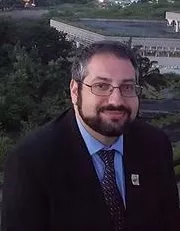
Dr. Gregory H. Winger is an Assistant Professor in the School of International and Public Affairs at the University of Cincinnati. He specializes in cybersecurity, U.S. foreign policy, and security studies. His reasearch examines security cooperation and in particular how collaborative activities like defense diplomacy have been used to facility cooperation on emerging security issues. Dr. Winger has done significant work on how these activies have occured within the U.S.-Philippine alliance and how they are now being adapted to cybersecurity.
He has authored several works on these subjects in publications such as Foreign Affairs, Foreign Policy Analysis, and Armed Forces & Society. He is the recipient of numerous prestigious awards including the World Politics and Statecraft Fellowship from the Smith Richardson Foundation and the Liefur Erikisson Scholarship. He has also held research fellowships with esteemed institutions including the Center for Small State Studies at the University of Iceland, the Institute for Human Sciences in Vienna, and as a Fulbright Fellow in the Philippines.
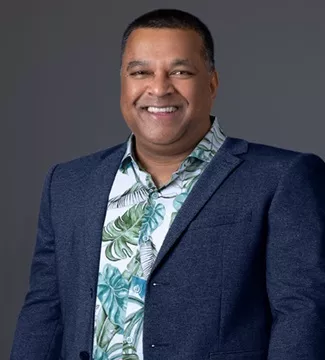
Dr. Satu P. Limaye is Vice President of the East-West Center and Director of Research, East-West Center in Washington, and interim director of the Professional Development Program. He created and directs the Asia Matters for America initiative and is the founding editor of the Asia Pacific Bulletin. He is also a Senior Advisor at CNA Corp (Center for Naval Analyses). He is a graduate of Georgetown University and received his doctorate from Oxford University (Magdalen College) where he was a George C. Marshall Scholar.
He publishes and speaks on Indo-Pacific regional issues and supports various US government, foundation, fellowship, and professional organizations. He recently served on the Center for New American Security (CNAS) Task Force on the US-Philippines Alliance, United States Institute of Peace (USIP) Senior Study Group on the North Pacific, Project 2049 Study Group on the US-Australia Alliance, and Global Taiwan Institute-Taiwan Asia Exchange Foundation project on Taiwan’s New Southbound Policy. He serves on the Korea Economic Institute (KEI) Advisory Council and editorial board of East Asian Policy and regional editor of Global Asia.
The East-West Center in Washington invites you to an
Indo-Pacific Foreign Policy and Defense Series Seminar:
Securing a Digital Nation: Insights and Lessons from the United States for Its Ally, the Philippines
A Conversation With:
Francisco Ashley L. Acedillo
Chief of Staff & Cybersecurity Adviser
Senate of the Philippines
Angel Redoble
Chairman
Philippine Institute of Cybersecurity Professionals
Oscar Visaya
Vice Chairman
Philippine Institute of Cybersecurity Professionals
Dr. Albert Miguel Gomez
Senior Researcher
Center for Security Studies, ETH Zurich
Dr. Gregory H. Winger
Assistant Professor
School of International and Public Affairs, University of Cincinnati
Dr. Satu P. Limaye (Moderator)
Vice President
East West Center
In a world where data has overtaken oil as its greatest currency, the country that is most digitally connected and the most adept in technology gets to ascend, or in the case of the United States, keep the totem pole’s top spot. But this connectivity comes with a cost: It has also made itself the prime target of the most sophisticated hacking groups, and in the case of its rival states, the most determined and most capable of undermining its networks and systems both government and private.
Although a developing country, the Philippines is not without its threats and challenges in cyberspace. As the United States’ long-time ally in the Asia Pacific region from which many of its institutions of the former have been modeled after the latter, how can the country learn from the US experience in leading both federal and private efforts to secure cyberspace from malign threats? What are the areas of possible cooperation between these two allies?

Francisco Ashley L. Acedillo is the Chief of Staff and Cybersecurity Adviser for the Senate of the Philippines. Acedillo also serves as the President of PICSPro Inc. and is an Adjunct Faculty Member for Technology at the Asian Institute of Management. Prior to his current capacities, Acedillo has over 15 years of experience in various positions related to cybersecurity consulting and policy, including as a Member in the House of Representatives and a Pilot in the Philippine Air Force. He has a BS from the Philippine Military Academy, a Master of Management from the Asian Institute of Management, and a JD from the University of the Philippines College of Law.

Mr. Angel Redoble is a First Vice President and the Chief Information Security Officer of PLDT Group, Smart Communications and ePLDT Group and formerly a Senior consultant of Indra Sistemas, Spain leading cybersecurity projects. He is currently the Chairman and Founding President of the Philippine Institute of Cyber Security Professionals and The Chairman of the MVP Group Cyber Security Council and currently and MPIC Group Chief Information Security Advisor. A former adjunct faculty and course director of the Cybersecurity Executive Course at the Asian Institute of Management (AIM).
Mr. Redoble is the former Chairman of the PNP Anti Cybercrime Group National Advisory Council. An alumnus of the National Defense College of the Philippines (NDCP) Senior Executive Course on National Security, where he is also a regular lecturer on the topics Cyber Security and Cyber Warfare.

Oscar Visaya is the Country Manager for the Philippines at Palo Alto Networks for more than five years.
Prior to joining Palo Alto Networks, Oscar held multiple Sales and Technology leadership roles at F5 Networks and Cisco. He was formerly the Country Director and ASEAN Service Provider Virtual Team Leader at F5 Networks and the Regional Manager and Systems Engineering Manager at Cisco.
Oscar is currently the Vice Chairman of the Board of Directors for Philippine Institute of Cybersecurity Professionals.

Dr. Miguel Alberto Gomez is a Senior Researcher at the Center for Security Studies (CSS) at ETH Zurich. He completed his doctoral studies at the Universität Hildesheim. Before joining the CSS, he was a lecturer at the De La Salle University and the College of St. Benilde in the Philippines and has worked in the information security industry before joining academia.
His area of research resides within the intersection of political psychology, foreign policy, and cybersecurity. Specifically, he is interested in the strategic use of cyberspace as an instrument of national power and the cognitive and affective factors that influence decision-making for elites and non-elites.

Dr. Gregory H. Winger is an Assistant Professor in the School of International and Public Affairs at the University of Cincinnati. He specializes in cybersecurity, U.S. foreign policy, and security studies. His reasearch examines security cooperation and in particular how collaborative activities like defense diplomacy have been used to facility cooperation on emerging security issues. Dr. Winger has done significant work on how these activies have occured within the U.S.-Philippine alliance and how they are now being adapted to cybersecurity.
He has authored several works on these subjects in publications such as Foreign Affairs, Foreign Policy Analysis, and Armed Forces & Society. He is the recipient of numerous prestigious awards including the World Politics and Statecraft Fellowship from the Smith Richardson Foundation and the Liefur Erikisson Scholarship. He has also held research fellowships with esteemed institutions including the Center for Small State Studies at the University of Iceland, the Institute for Human Sciences in Vienna, and as a Fulbright Fellow in the Philippines.

Dr. Satu P. Limaye is Vice President of the East-West Center and Director of Research, East-West Center in Washington, and interim director of the Professional Development Program. He created and directs the Asia Matters for America initiative and is the founding editor of the Asia Pacific Bulletin. He is also a Senior Advisor at CNA Corp (Center for Naval Analyses). He is a graduate of Georgetown University and received his doctorate from Oxford University (Magdalen College) where he was a George C. Marshall Scholar.
He publishes and speaks on Indo-Pacific regional issues and supports various US government, foundation, fellowship, and professional organizations. He recently served on the Center for New American Security (CNAS) Task Force on the US-Philippines Alliance, United States Institute of Peace (USIP) Senior Study Group on the North Pacific, Project 2049 Study Group on the US-Australia Alliance, and Global Taiwan Institute-Taiwan Asia Exchange Foundation project on Taiwan’s New Southbound Policy. He serves on the Korea Economic Institute (KEI) Advisory Council and editorial board of East Asian Policy and regional editor of Global Asia.












